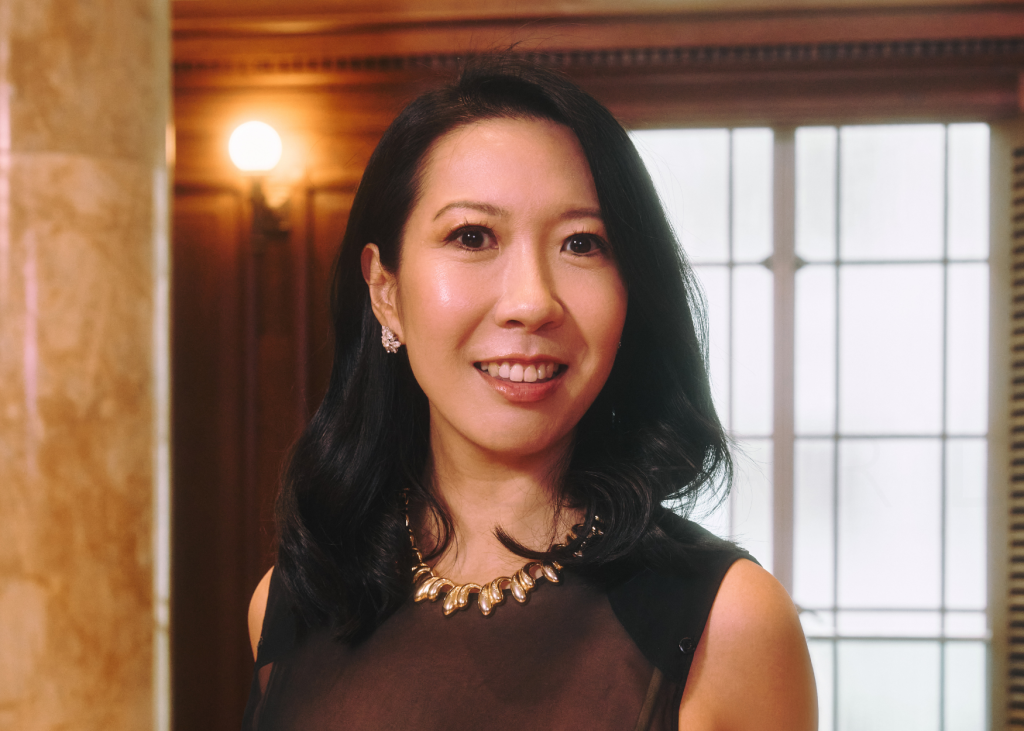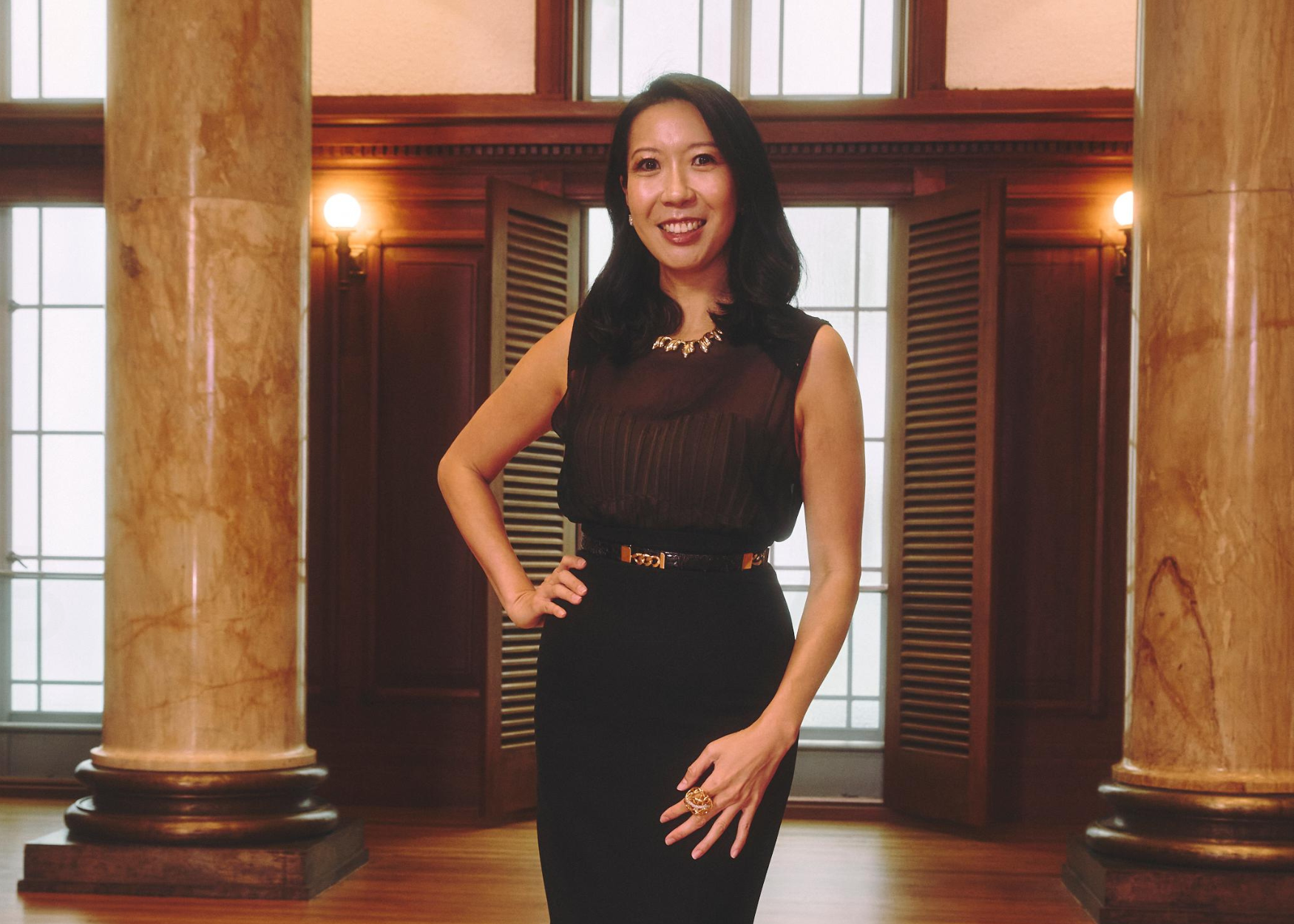The interview: Turn Capital’s Ho Kheng Lian on going against the trend in social tech
by Karishma Tulsidas
Ho Kheng Lian calls herself a networker and connector—her “superpower”, as she puts it. But after two conversations with her, I suspect she has another: she rarely says no to what comes her way. That openness has served her well in a career that’s spanned sport, law, finance, and entrepreneurship, from being a national badminton champion to practising restructuring law in Hong Kong for six years, fundraising for global brands, and co-founding ventures across Asia.
Today, she is the general partner of Turn Capital and an active angel investor, with a portfolio spanning tech and crypto. Turn Capital is distinct in its optimism for Asia’s consumer tech space, a sector many VCs have left behind in the rush towards AI.

Ho Kheng Lian, general partner of Turn Capital.
Boulevard: What exactly do you, and Turn Capital, do?
Ho Kheng Lian: I’m one of the general partners at Turn Capital. We’re a value investing fund that acquires majority controlling stakes in underperforming consumer technology companies that we turn profitable within five years.
What differentiates us from other funds is that we believe in ‘profit first’, are hands on in operating and turning the companies around, and we distribute dividends along the way to our Limited Partners from our profitable companies such that LPs receive returns even before the final liquidity event. I largely handle sourcing and restructuring the companies, fundraising, investor relations and business development, which marries my previous restructuring law experience and the tech financial advisory business I built over the past decade.
Blvd: How did Turn Capital come about?
Lian: My business partner, Joseph Phua (whom I’ve known since junior college), started a dating app called Paktor in 2013, which became Southeast Asia’s leading dating platform.
Using VC funding, he then acquired an underperforming live-streaming platform in Taiwan at the time. It wasn’t the market leader—probably fourth or fifth—but it had a strong subscriber base and lacked monetisation. We built 17 Live Group from US$2 million to US$400 million in revenue and listed it on the Singapore Exchange via VTAC, Singapore’s first SPAC, anchored by Temasek and Vertex Ventures.
When Joseph formed his single-family office, and since we had worked together from the start of Paktor where I was his early shareholder and raised funds for him from pre-seed to pre-IPO, I proposed starting a VC fund together. However, Joseph wanted to stick to what we do best—building profitable operating businesses. So, under the family office, recalling his former CFO at 17 Live Group, Shang Koo, and reviving my 6 years of restructuring law background in Singapore and Hong Kong, we continued to look for undervalued assets with existing infrastructure—subscriber base, at least US$5 million in revenue—where poor operations, founder fallouts, or other ‘special situations’ have created an opportunity for outsized returns. In 2024, we decided to let third parties benefit from the good results we have seen and raised our fund last year.
Blvd: How do you evaluate companies Turn Capital acquires?
Lian: We have five criteria.
One, we invest only in B2C consumer tech in verticals we understand such as live streaming, e-commerce, dating. Our latest acquisition is FRND, a fashion e-commerce platform that helps influencers launch their own brands—you’re the first publication to hear about it.
Second, the companies should be in Series B–D, with at least US$5 million in revenue, so there’s proven infrastructure, user base, and product market fit.
Thirdly, we need to be able to bring a company back to breakeven within six to 12 months. If we can’t see a clear way to break even—whether through cost cuts, store closures, headcount changes, or operational overhauls—we won’t proceed.
Fourth, we have a distinct Asia-Pacific focus. Joseph and I are Singaporean, Shang is an American-born Chinese based in Shanghai, and we’ve built businesses in both Southeast and North Asia.
Lastly, we need to see a clear exit strategy. We engage potential acquirers early and understand what revenue or scale they require. We’re also experienced in listings—Joseph and Shang have taken companies public in China, the US, and Singapore—and can list on smaller exchanges if needed.
Blvd: What are you excited about right now?
Lian: We love social entertainment and social networks. While the world is chasing AI, we see opportunities in consumer tech, even if it’s out of fashion with VCs. There’s still a sticky audience, strong demand, and room for innovation—especially when AI can enhance existing platforms.
We also factor in geopolitical trends. With Trump’s tariffs, there’s growing economic nationalism—countries focusing inward—we are looking for platforms with strong local user base rather than global.
Blvd: Why do consumer tech companies tend to be overlooked?
Lian: AI is where most capital is flowing where there are higher margins, stickier user base, more recurring revenue and scalability.
Consumer tech—especially marketing-heavy models—is seen as capital-intensive requiring massive customer acquisition spending which results in low margins, lower valuation multiples and in need of constant innovation to maintain brand loyalty from changing consumer behaviour. They are hence seen as less investible right now versus AI and other areas like space tech, quantum computing or climate tech in the media hype cycle.
Although we are in the consumer tech space, we mitigate our risks as we “buy low sell high”. We are also very selective of which companies to invest in (only 3-5 of them per fund). They must meet the above criteria I highlighted and that we can build on top of a strong existing sticky user base. We also do the opposite of blitz scaling, overwhelming customer acquisition costs or feature creep. We focus on efficient operations and disciplined spending to get to breakeven in six to 12 months and profitability by month 18, so we can start paying dividends. With FRND, we are distributing dividends in the first month after acquisition.
Blvd: Tell us more about your focus on Asia.
Lian: We deliberately focus on Asia-Pacific, because this is where our expertise, networks, and cultural understanding give us an advantage. The way consumers here behave—especially in tech—can be very different from the West, and that gap is exactly where opportunity lies.
Take livestreaming as an example. In Asia, audiences embraced tipping and gifting entertainers long before the West understood it. And it’s not just about ‘girls dancing’. One of our top earners on 17 Live was a male comedian. In this part of the world, social entertainment blends commerce, gifting, and community in ways that are still misunderstood outside the region. TikTok itself is an Asian-born platform.
There’s also a bigger cultural shift at play. Twenty years ago, ‘Made in Singapore’ or ‘Made in Taiwan’ didn’t carry the same pride. Even in 2013, when I moved to Hong Kong, someone commented on my Singaporean accent, and I felt embarrassed. Today, I embrace it—Singlish and all. It’s efficient, funny, and deeply representative of who we are.
Blvd: How do you approach your personal investments?
Lian: I’ve been angel investing in tech and crypto for more than a decade. Most of my assets are in alternatives, which is unusual, but I have a high-risk appetite.
In 2020, I met a sovereign wealth fund’s head of crypto investments at a conference. He told me he held no fiat currency, only crypto, stablecoins like USDC and USDT, and Bitcoin. At the time I was shocked; now I get it. I believe in letting money work while I sleep and liquidate what I need when I do.
With stocks, I play the long game. I buy, hold, and liquidate selectively when needed.
Blvd: You’re also an angel investor. How do you evaluate investments?
Lian: It started when I left law. A friend in New York invited me to co-invest in a startup and help expand it to Asia. I went in as a super angel, helped it to fundraise and expand to Asia which is where I learnt about the operations of a startup from within. I then joined my friends at Vectr Ventures as a Venture Partner where I learnt the ropes of how to evaluate early stage tech investments.
I only invest if I can value-add through my network or know-how— for example, whether that’s legal expertise for a legal tech company, or consumer insight for a travel AI platform.
I also look at the founder—integrity, resilience, adaptability, and perseverance are non-negotiables.
I evaluate the market need for the product or service, and make sure I get the right deal at a favourable price and with enough equity for meaningful returns.
And my golden rule: only invest what you’re willing to lose. Every angel investment should be money you can write off while you hope for a unicorn.
Read next:






